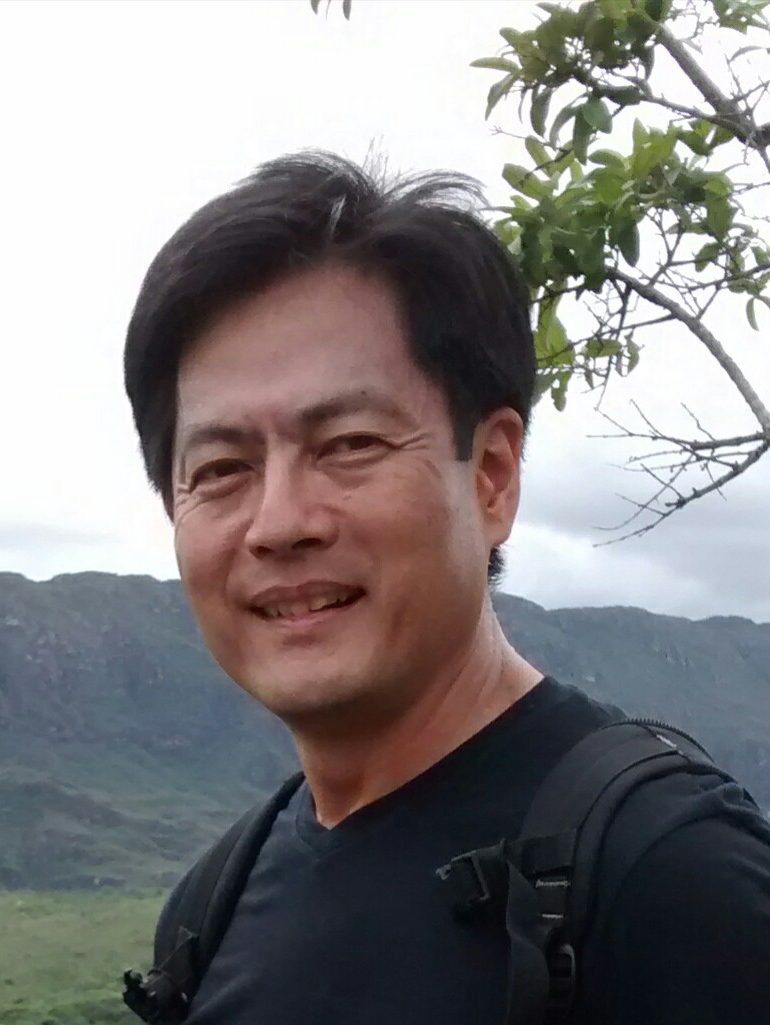
Alexandre Igari – Environmental Management
He is faculty of the Environmental Management Program at the School of Arts, Sciences and Humanities of the University of São Paulo (EACH-USP), in the areas of Administration and Finance applied to Environmental Management and Ecological Economics. He also works as a lecturer, researcher and advisor in the Graduate Program in Sustainability (PPGS – EACHUSP). He holds a PhD in Ecology from the Institute of Biosciences of the University of São Paulo (IB-USP), he was visiting scholar at the University of Alicante (Spain). Simultaneously to his tenure in Spain, he has completed the European Masters in Management and Environmental Restoration by the University of Alicante in 2012. He graduated as a bachelor in Biological Sciences by IB-USP in 2005, and has a bachelor’s degree in Business Administration by the School of Business Administration, Economics and Accounting of the University of São Paulo (FEA-USP) in 1995. Research lines: 1. Socioeconomic vectors for environmental conservation 2. Accounting and finance applied to environmental management 3. Environmental conservation in private areas.

André F. Simões– Environmental Management
He holds a bachelor’s degree in Metallurgical Engineering from the Pontifical Catholic University of Rio de Janeiro (1994), a Master’s Degree in Metallurgical Engineering from the Pontifical Catholic University of Rio de Janeiro (1998), a PhD in Energy Planning from the Federal University of Rio de Janeiro (2003) PhD in Energy Systems Planning by the State University of Campinas – Unicamp (2006). He is Professor of the Environmental Management Undergraduate Program at the School of Arts, Sciences and Humanities of the University of São Paulo (EACH / USP). Between 2011-2013, he was the dean of the Environmental Management Undergraduate Program at EACH / USP. He is also a faculty member of the Graduate Program in Energy – IEE / USP and faculty member of the Program of Energy Systems Planning – CPG / FEM / Unicamp. Due to his participation in 20 national and/or international projects, he has experience in the area of Energy and Environmental Planning. Overarching themes related to the projects already developed: Global Climate Change, International Carbon Credits Market, Energy Matrix, Renewable Energies, Energy Efficiency, Greenhouse Gases, Mitigation Alternatives, Adaptation Alternatives, Sustainable Development in Brazil and in the World, Universalization of Access to Electric Power, Petroleum, Natural Gas and Environmental Engineering.

Andrea Cavicchioli – Science and Environmental Technology
He holds a bachelor’s degree in Industrial Chemistry – University of Degli Studi di Milano (1994), Master’s Degree in Environmental Analytical Chemistry – University of London (1996) and Doctorate in Chemistry (Analytical Chemistry) – University of São Paulo (2002). He is an Associate Professor at the University of São Paulo, he is responsible for research projects related to the sustainable conservation of natural and cultural heritage, risk assessment of material cultural assets, pollution of aquatic and atmospheric environments (with focus on indoor environments), including both urban and rural settings, and effects of pollutants on human health and material conservation, as well as assessing the consequences of climate change on the above listed issues.

Cristiano M. Chiessi – Science and Environmental Technology
He holds a bachelor’s degree in Geology (2001) by the Geosciences Institute of USP IGc, a masters in Geosciences (with emphasis on Sedimentary Geology) by the IGc USP (2004) and a PhD (2008) in Natural Sciences (with emphasis on Paleoceanography and Paleoclimatology) by the University of Bremen, Germany. Between 2008 and 2009, he developed research in the fields of Paleoceanography and Paleoclimatology within his postdoctoral fellowship with the National Institute of Space Research (INPE). Currently, he is a professor at the School of Arts, Sciences and Humanities at USP, as well as a collaborating researcher at INPE’s Earth System Science Center. Cristiano M. Chiessi works in Working Group 1 (Scientific base of climate change) of the Brazilian Panel of Climate Change and is Full Member of the Palaeoclimate Commission (PALCOMM) of the International Union for Quaternary Research (INQUA). He has experience in the area of Geosciences, with emphasis on Paleoceanography, Paleoclimatology and Climate Change, working mainly on the following topics: abrupt climate changes, thermohaline circulation, multi-decadal climate variability, South American monsoon system, carbonate and carbon geochemistry Total sediment, Upper Quaternary, South America, and South Atlantic.

Evandro Moretto – Environmental Management
He holds a bachelor’s degree in Biological Sciences from UNESP in Botucatu, MS in Environmental Engineering from the School of Engineering of São Carlos – EESC / USP and Doctor of Science (area of concentration: Ecology and Natural Resources) from the Federal University of São Carlos – UFSCar. He has worked at the Ministry of Environment as Specialist in Environmental Public Policies from 2004 to 2007, working on Environmental Planning and Management, Environmental Impact Assessment, Environmental Licensing and Environmental Indicators. He is currently a faculty at the University of São Paulo, working in the bachelor’s degree in Environmental Management at EACH / USP, in the Graduate Program in Sustainability, Graduate Program in Environmental Engineering Sciences at the School of Engineering of São PauloEESC / USP and In the Graduate Program in Environmental Science of the Institute of Energy and Environment – IEE / USP. The main research lines are Development and Environment, Environmental Planning and Management, Environmental Impact Assessment.
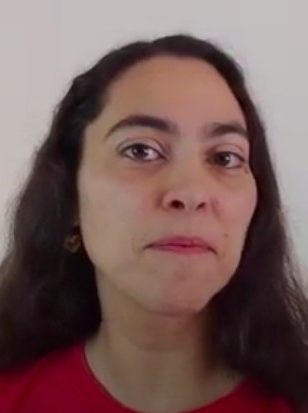
Flávia Noronha Dutra Ribeiro – Science and Environmental Technology
She is faculty member in the Environmental Management Program of the School of Arst, Sciences and Humanities of the University of Sao Paulo (EACH-USP) in the areas of Mathematics for Environmental Analysis and Environmental Modeling. Acts also as researcher, lecturer and advisor in the Graduate Program in Sustainability (PPGS – EACH-USP). PhD in Atmospheric Sciences by the Institute of Astronomy, Geophysics and Atmospheric Sciences of the University of Sao Paulo (IAG-USP, 2010). Graduated in Mathematics by the Institute of Mathematics and Statistics of the University of Sao Paulo (IME-USP, 1999). Is a member of the Group of Micrometeorology at the IAG-USP. Perform researches related to the urban atmosphere, urban heat islands, ocean-atmosphere interaction, air quality and emission of atmospheric pollutants. Research lines: 1. Numerical models of atmospheric circulations of meso and micro scales 2. Numerical models of air quality 3. Meteorological and air pollution data analysis.

Helene Mariko Ueno – Science and Environmental Technology
She holds a bachelor’s degree in Biological Sciences – Medical Major by the Universidade Estadual Paulista Júlio de Mesquita Filho (1994) a Master’s degree in Public Health from the University of São Paulo (2000), and PhD in Public Health from the University of São Paulo (2005). She has experience in the area of Parasitology, with emphasis in Medical Entomology, working mainly in the following subjects: vector ecology, health sciences, mosquitoes of medical importance and epidemiology.
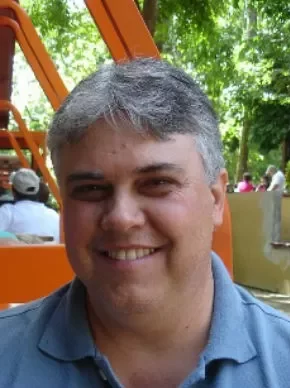
Homero Fonseca Filho – Science and Environmental Technology
Graduated in Agronomic Engineering from the Luiz de Queiroz School of Agriculture – ESALQ of the University of São Paulo – USP (1984), specialization in Heveiculture – Natural Rubber Production from the Federal Rural University of Amazonia (1985), improvement in Sustainable Agricultural Production from the University of Newcastle Upon Tyne, England (1993), Master in Agronomy – Plant Science (Agroecology), also from ESALQ/USP (1993), PhD in Geosciences and Environment by the Institute of Geosciences and Exact Sciences – IGCE of the Universidade Estadual Paulista Júlio de Mesquita Filho – UNESP (1999), certification in Virtual Education by Simon Fraser University, Canada (2006), post-doctorate and specialization in Spatial Data Infrastructure and its implementation with open tools by Universidad Politécnica de Madrid (2010) and post-doctoral research internship in the Geomatic Engineering Department of the Universidad de Concepción in Chile (2018). In 1984 he started his professional life. He worked at the Rubber Superintendence of the Ministry of Industry and Commerce from 1984 to 1987, at the Federal University of Lavras from 1987 to 2002, and collaborated at the Federal University of São Carlos from 1999 to 2001. He was a Professor at the Faculdade Municipal Professor Franco Montoro in 2002. He joined the University of São Paulo (USP) in 2002, as Professor Doctor of the Department of Transportation Engineering (Spatial Information Area) of the Polytechnic School (POLI), where he remained until 2007. He is currently Professor and former Coordinator of the Bachelor’s Degree in Environmental Management, professor, researcher and advisor (master and doctorate) in the Postgraduate Program in Sustainability of the School of Arts, Sciences and Humanities – EACH (USP/LESTE) and collaborator of the Postgraduate Program in Environment, Health and Sustainability of the School of Public Health of the USP, as well as collaborator of the Postgraduate Program in Textiles and Fashion of EACH/USP. He conducts research and projects in the areas of Geoprocessing, Geographical Information Systems, Remote Sensing, Cartography and Spatial Data Infrastructure applied to the resolution of environmental problems, Forestry and Agricultural Sciences, Sustainable Agriculture and Agroecology. He applies these Geotechnologies as a tool to support Sustainable Development and Sustainability. He is a member of the Research Group on Waste, Energy, Health and Environment (RESA). He is a member and leader of the Group for Studies and Research in Spatial Data Infrastructure (GEPIDE) and the Laboratory of Geospatial Computing (LaCoGeo), all from EACH/USP. He is the coordinator of the International Network for Environmental Sustainability and member of the IDEAIS – Intelligent Assistants for Spatial Data Infrastructures Network.

Leonardo Dias Meireles – Science and Environmental Technology
Graduated in Biological Sciences from the Federal University of Juiz de Fora (2001) and master’s degree (2003) and doctorate (2009) in Plant Biology from the State University of Campinas. He has experience in Botany and Plant Ecology, working mainly on the following topics: Atlantic forest, cloud forest, altitude fields, floristics, phytosociology, phytogeography, community ecology, species distribution modeling and quaternary climate change.

Luís Américo Conti – Science and Environmental Technology
I was born and grew up in São Paulo, Brazil. I did my undergraduate degree in Geography at the Geography Department – University of São Paulo before going to the Oceanographic Institute to do my M.Sc. (Marine Geology) and Ph.D. with a stage at University of Bordeaux ? France. I am currently Associate Professor of Geology at School of Arts, Sciences and Humanities (EACH) ? University of São Paulo. I teach several courses related to geology and geoinformatics, including “Marine and Coastal Geomatics”, “Geographic Information Sciences” and “Geology of Natural Resources”. Before I started my academic career at USP I have worked as a Field Marine Geophysicist in Schlumberger Seismic Services. My Current research interest includes to understand short and long-term geological processes that have influencing seabed habitats, both in shallow shelf and deep-sea waters using geomatics tools and Geographic Information Systems. I am also involved in several Spatial Data Infrastructures projects, investigating approaches to building usable systems to facilitate and integrate data and metadata access and evaluation, especially for coastal and marine environments.
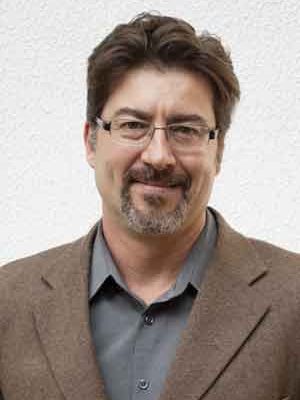
Luís César Schiesari – Science and Environmental Technology
Biologist (University of São Paulo, 1991), Master in Zoology (University of São Paulo, 1996) and in Ecology (University of Michigan, USA, 2000), PhD in Ecology and Evolutionary Biology (University of Michigan, USA, 2004) and Lecturer in Ecology (University of São Paulo, 2010), with postdoctoral experience in Ecotoxicology (University of Veterinary Medicine of Vienna; 2004, 2006, 2008) and Ecology of Metapopulations, Metacommunities and Metaecosystems (University of Texas; 2014, 2015). He is currently Associate Professor of Environmental Management at the University of São Paulo (since 2005) and Full Advisor of the Graduate Programs in Ecology (since 2006) and Sustainability (since 2018) at the University of São Paulo. His line of research focuses on theoretical and applied ecology in aquatic systems, at all levels of biological organization (sub-individual attributes, individual, population and community), and combining analysis and reanalysis of published data, field sampling, and experiments in laboratory, mesocosms, experimental plots and field. He is currently conducting research on the organization of communities and metacommunities in aquatic systems, as well as their regulatory mechanisms. Within this framework, he has been investigating the ecology of modified environments, with a focus on agro-industrial systems, and especially on the consequences of pesticide and fertilizer contamination, hydrological alterations, and microclimatic changes. He is a ‘Recommender’ of the ‘Peer Community in Ecology’ initiative and a referee for several high profile international journals as well as national and international research funding agencies. Since 2018 he is a Member of the National Technical Commission for Biosafety of the Ministry of Science, Technology and Innovation in the condition of Specialist in the Area of Environment.

Marcelo Nolasco – Science and Environmental Technology
He holds a bachelor’s degree in Biological Sciences from the Federal University of São Carlos (1988), a Master’s degree in Bioengineering (2003), a PhD in Hydraulic Engineering and Sanitation from the School of Engineering of São Carlos, University of São Paulo (1998) and became associate professor (2012) by the same institution, having been a visiting researcher at Miami University, USA (Doctorate ‘Sandwich’, 1995 to 1997). In 2007 he completed a specialization in Ecological Sanitation by the Stockholm Environment Institute, Sweden. He is currently associate professor, teaching in the bachelor’s degree in Environmental Management. He is faculty member of the Graduate Program in Sustainability (EACH-USP) and in the Graduate Programs in Public Health and Professional Masters (FSP-USP). He coordinates the Research Group “Water, Sanitation and Sustainability” – GEPASS, the Laboratory of Research in Environmental Sanitation (LabSan). He has experience teaching and research in environmental science and engineering with emphasis on wastewater treatment, working mainly on the topics: aerobic and anaerobic reactors for the treatment of domestic and industrial wastewater, environmental sanitation, water reuse and sustainability.
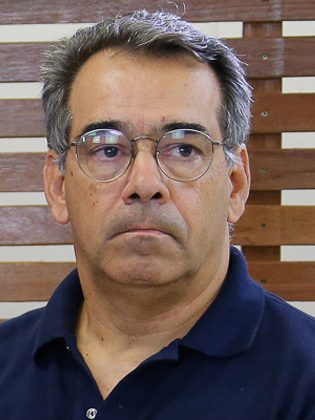
Marcelo Marini Pereira de Souza – Environmental Management
He holds a bachelor’s degree in Civil Engineering from the University of São Paulo (1980), a Bachelor’s Degree in Law from the São Carlos Law School (2002), a degree in Business Administration from Universidade Presbiteriana Mackenzie (1981) and a Master’s degree in Public Health from Universidade de São Paulo São Paulo (1989) and PhD in Public Health from the University of São Paulo (1993). He is currently a full professor at the University of São Paulo. He has experience in the area of Environmental Policy Tools, with emphasis on Environmental Impact Assessment, working mainly on the following topics: environmental impact assessment, environmental zoning, environmental management, strategic environmental assessment and water resources management.
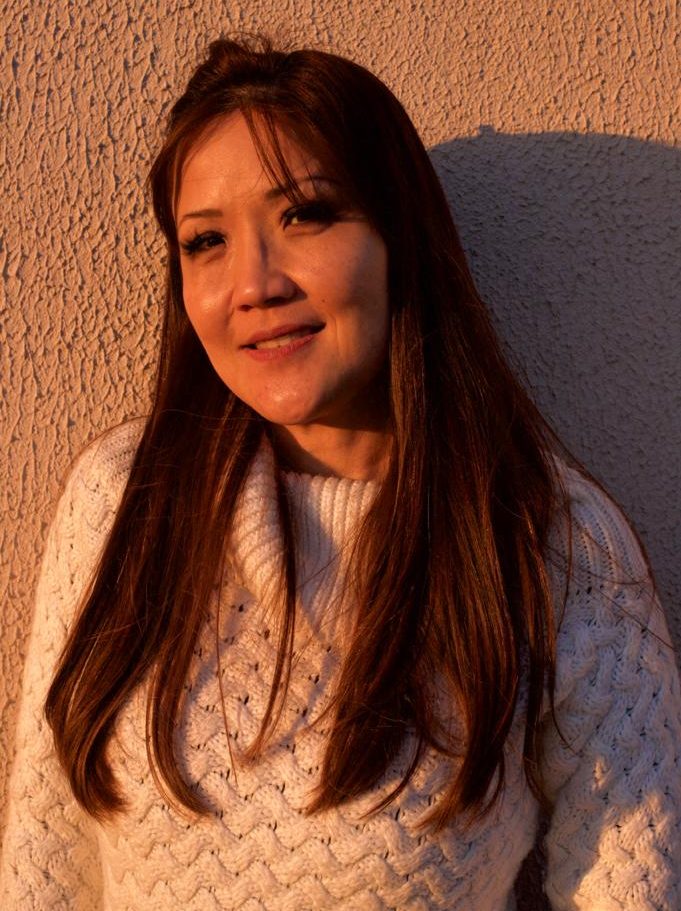
Miriam Sannomiya – Science and Environmental Technology
She has graduated in Earth Sciences from Universidade Estadual Paulista Julio de Mesquita Filho (1994). She got a master in Chemistry from Universidade Estadual Paulista Julio de Mesquita Filho (1997) and PhD in Chemistry from Universidade Estadual de Campinas (2001). She has experience in Organic Chemistry, focusing on Chemistry of Natural Products, acting on the following subjects: Bioprospecting of natural products (Fabaceae, Byrsonima, Malpighiaceae, Lonchocarpus, Platymiscium, Machaerium, flavonoids, quinic acid derivatives) and Effects of the environment on the production of secondary metabolites.
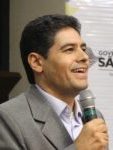
Paulo Santos de Almeida– Environmental Management
He has graduate (PhD) in Social Relations Law by Pontificia Universidade Catolica of São Paulo, 2006. Former Executive Director and President (CEO) of the Foundation for Conservation and Forest Production of the State of São Paulo (Forest Foundation).He is currently Technical Advisor of the Environmental Management Superintendence of the University of Sao Paulo (SGA-USP), and Assistant Professor in the School of Arts, Sciences and Humanities (EACH) of the University of São Paulo (USP) where he teaches Environmental Law in Environmental Management´s undergraduate, and Public Policy in Sustainability´s program graduate. He leads researchers on Research Group on Sustainable Cities and Environmental management (CIDSGAM) certificate by the CNPq-Brazil; also he is Researcher of the Group on Carbon Emissions Policy and Regulation (NUPPREC-IEE-USP), and Study Group of Planning and Environmental Management (PLANGEA-USP). Law environmental consultant and Lawyer in São Paulo/SP. Publishes articles in journals, scholarly works oriented scientific initiation in the field of environmental law and their interfaces. Is an effective member of the sustainability and Environment Committee member and consultant for the Commission on Science and technology, both of OABSP (Brazilian BAR). In Jan. 2014-2015 developed his postdoctoral as visiting scholar at University of California, San Diego (UCSD), the ILAR (Laboratory of International Law and Regulation) of the IR/PS (School of International Relations and Lenoir Studies) with post-doctoral fellowship by CAPES-Brazil..In their contextualization of scientific production the frequent themes are: sustainability, cultural environment, education, consumer relations, Environmental Law, legal and environmental indicators, residuals, payments for environmental services, climate change, animal rights and the right to sustainable city.

Regina M. de Miranda – Science and Environmental Technology
She holds a bachelor’s degree in Physics from the State University of Campinas (1994), a Master’s degree in Geosciences from the State University of Campinas (1997) and a PhD in Meteorology from the University of São Paulo (2001). USP also carried out postdoctoral studies in the area of atmospheric pollution (2001-2003). From 2003 to 2005, she worked as a researcher at UNICAMP, in a postdoctoral regime, also in atmospheric pollution. From June of 2005 to April of 2007 was researcher of the National Institute of Space Research, area of atmospheric radiation. From May 2007 to June 2010 she worked as a postdoctoral researcher at IAG / USP. He has experience in the area of Geosciences, with emphasis on Atmospheric Pollution, working mainly on the following topics: atmospheric aerosol, atmospheric radiation, meteorology, physico-chemical characterization and atmospheric modeling. She is currently a professor at the School of Arts, Sciences and Humanities of the University of São Paulo, in the Environmental Management Undergraduate Program.

Renata Colombo – Science and Environmental Technology
She holds a bachelor’s degree in Chemistry (1998) from the Institute of Chemistry of São Carlos (IQSC-USP) and a PhD in Analytical Chemistry (2003) from IQSC-USP. She is currently a professor at the School of Arts, Sciences and Humanity (EACH-USP). She works in the area of Analytical Chemistry, with research in phytochemistry and methods of separation by chromatography, and in the area of Environmental Chemistry, with environmental pollutants and green technologies for the use of solid waste.

Sérgio A. Pacca – Science and Environmental Technology
He is associate professor at the School of Arts, Sciences and Humanities (EACH), in the undergraduate Environmental Management Program and the Graduate programs in Sustainability and Civil Engineering, both from the University of São Paulo (USP). Postdoctoral degree from the School of Natural Resources, University of Michigan (USA, 2005). Visiting Professor at the Graduate School for International Development and Cooperation (IDEC) of Hiroshima University (2011). Visiting professor in the Graduate program at the School for Renewable Energy Science, Akureyri, Iceland (2008, 2009 and 2010). Visiting professor in the Graduate program at the School of Natural Resources of the University of Michigan (2005). Postdoc researcher at the Institute of Transportation Studies, University of California, Berkeley (USA, 2004). PhD in Energy and Resources from the University of California, Berkeley (2003). Master degree in energy by the Program Interunidades de PostGraduação em Energia (PIPGE-USP, 1996). BA in Social Sciences from the School of Arts, Humanities and Philosophy (FFLCH-USP, 1992) and BSc in Agronomy from Luiz de Queiroz College of Agriculture; (Esalq-USP, 1987). Member of the International Society of Industrial Ecology. Researcher in the areas of energy sustainability, global climate change, life cycle analysis and industrial ecology.

Sonia Regina Paulino – Environmental Management
She holds a bachelor’s degree in Economic Sciences from the Paulista Júlio de Mesquita Filho State University (Unesp), a Master’s degree in Scientific and Technological Policy from the State University of Campinas (Unicamp) and a PhD in Economic Sciences from the Université des Sciences Sociales in Toulouse. He completed a PhD in the Laboratoire dEconomie et Sociologie Rurales, Institut National de la Recherche Agronomique (INRA) / Montpellier. She is currently a Ph.D. in Environmental Management, School of Arts, Sciences and Humanities (EACH), University of São Paulo (USP) and faculty member of the Graduate Program in Scientific and Technological Policy, State University of Campinas (Unicamp). She works on the following topics: science and technology (S & T) and environment, innovation, environmental certification, innovation in sanitation services, market mechanisms, arrangements and local production systems.

Sylmara Lopes Francelino Gonçalves Dias – Environmental Management
She is assistant professor at the School of Arts, Science and Humanities, Universidade São Paulo. Faculty of the Graduate Program in Environmental Sciences (PROCAM-USP) and the Graduate Program in Sustainability (PPgS-USP). She holds a PhD in Business Administration from Fundação Getulio Vargas SP and a PhD in Environmental Science from the University of São Paulo. She also holds a master degree in Business Administration from the University of São Paulo and a bachelor’s degree in Administration from the Pontifical Catholic University of Minas Gerais and a bachelor’s degree in Pedagogy from the Minas Gerais Institute of Education. She was executive Secretary of the National Association of Postgraduate Programs in Environment and Society ANPPAS (2012-2014). Member of the Editorial Board: Cadernos EBAPE, Cadernos de Gestión Social, Nau Social, Revista Eletrônica Economia e Gestão. She serves as a reviewer for the main Brazilian research funding agencies: CNPq, CAPES, FAPESP (Administration and Interdisciplinary areas). She has experience in the area of Administration, with emphasis on the following topics: sustainability, socio-environmental management, production-consumption and the environment, sustainability in the supply chain, packaging life cycle, Reverse logistics, solid waste, waste pickers, social businesses, strategic planning, organizations and society.
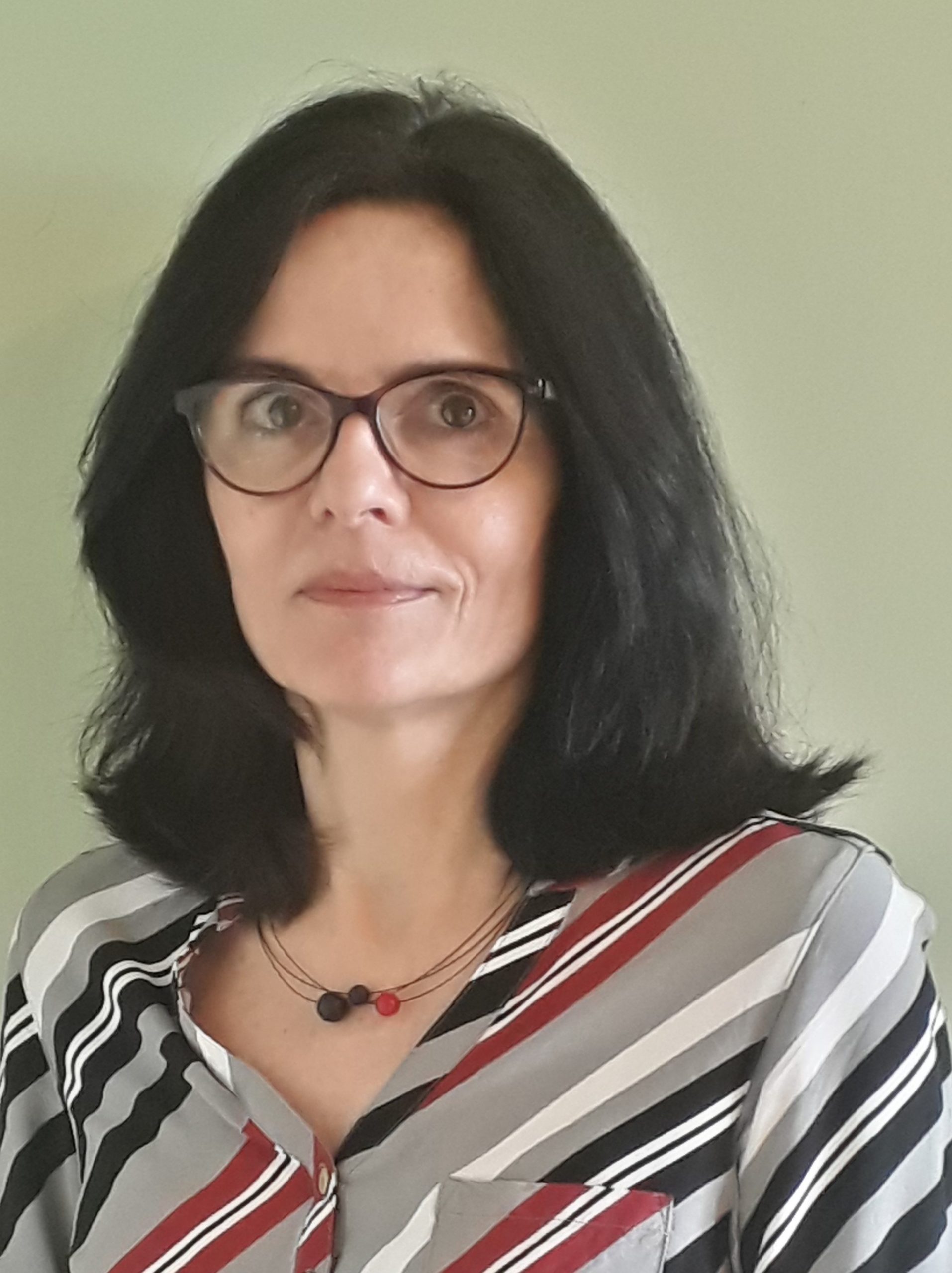
Tânia Pereira Christopoulos – Environmental Management
She holds a bachelor’s degree in Public Administration from Fundação Getúlio Vargas – SP (1991), a Master’s degree in Business Administration from Fundação Getúlio Vargas and a London Business School (2000) and a PhD in Business Administration from Getulio Vargas Foundation (2008). She is currently a professor at the University of São Paulo – EACH. Has experience in the area of Administration, with emphasis on information management, working mainly on the following topics: design thinking, learning, microfinance and social innovation. His lines of research are Social Business, Innovation and Microfinance, Innovation and Marketing Strategy.
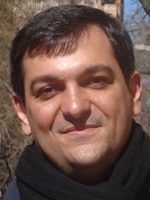
Tiago Francoy – Science and Environmental Technology
He holds a PhD in Genetics from the Faculdade de Filosofia, Ciências e Letras de Ribeirão Preto da Universidade de São Paulo (FFCLRP) (2007). He has a bachelors degree in biological sciences from FFCLRP (2002), and works mainly on the following subjects: Apis mellifera bees Africanization in the Americas, instrumental insemination of queens, traditional and geometric morphometry, automatic identification of species by wing morphometry and molecular biology techniques. He carried out his PhD at the Department of Biology of the FFCLRP, in which he initiated a research line aiming at the automatic identification of bee species by wing morphometry and the evaluation of population variability, intra and inter-specific. He is currently an Associate Professor and deputy coordinator of the Bachelor’s Degree in Natural Sciences at EACH – USP, where he works with conservation biology of native bee species applying molecular and morphometry research techniques.

Tomás Augusto Barros Ramos – Environmental Management
Associate Professor at the Department of Environmental Sciences and Engineering at the School of Sciences and Technology of the New University of Lisbon, where he teaches sustainability assessment and planning, in master’s and doctoral programs. He has a degree in Environmental Engineering (1992), from the New University of Lisbon (UNL), a Master in Science of Coastal Zones (1996), from the University of Aveiro and a PhD in Environmental Engineering (2005) from UNL. He is visiting professor/researcher at Nanjing University and Fudan University (China) and University of São Paulo (Brazil).
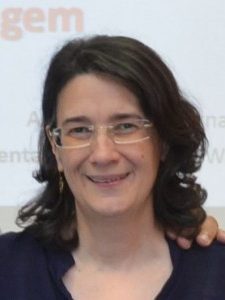
Wania Duleba – Science and Environmental Technology
She is faculty in the Natural Sciences Program (undergraduate) and Sustainability (Graduate – vice chair) at the School of Arts, Sciences and Humanities, University of São Paulo. She has a master’s degree (1993) and a doctorate (1997) in Biological Oceanography (Instituto Oceanográfico, USP) and a doctorate (1997) in Micropaleontologie et Paléoenvironnements Océaniques (Université d Angers, France). Postdoctoral studies in: 1) Ecology (Institute of Biosciences, USP, 1999), 2) Biogeochemistry of impacted marine environments (Cornell University, USA, 2005); 3) Micropaleontology and Environmental Geology (Instituto de Geociências, 2006, Young FAPESP Research Fellow). She received a scholarship from the Fullbright Scholar Program (2014-2016), USA, where she was a visiting professor at the University of Arizona (2015), 2) Department of Geology and Geophysics, Woods Hole Oceanographic Institution (2015-2016) And 3) National Center for Atmospheric Research (NCAR, 2016). She was also a visiting scholar at the 1) Institut de recherche pour le développement (IRD), Paris (2011) and 2) IODP Kochi Core Center, Japan (2015). She has participated in several projects and scientific expeditions in Antarctica, in the Indian Ocean (IODP 354 Expedition), Atlantic and Pacific (Central America, El Salvador), working in the areas of climate change, evaluation of impacted marine regions, paleoenvironmental reconstruction and biostratigraphy (foraminifera) . She was the principal investigator of the oceanography team (Project PROANTAR 557036-2009-7), aboard Ary Rongel and Admiral Maximiano ships, during the Antarctic Expeditions 29, 30,31, 32, 33.
